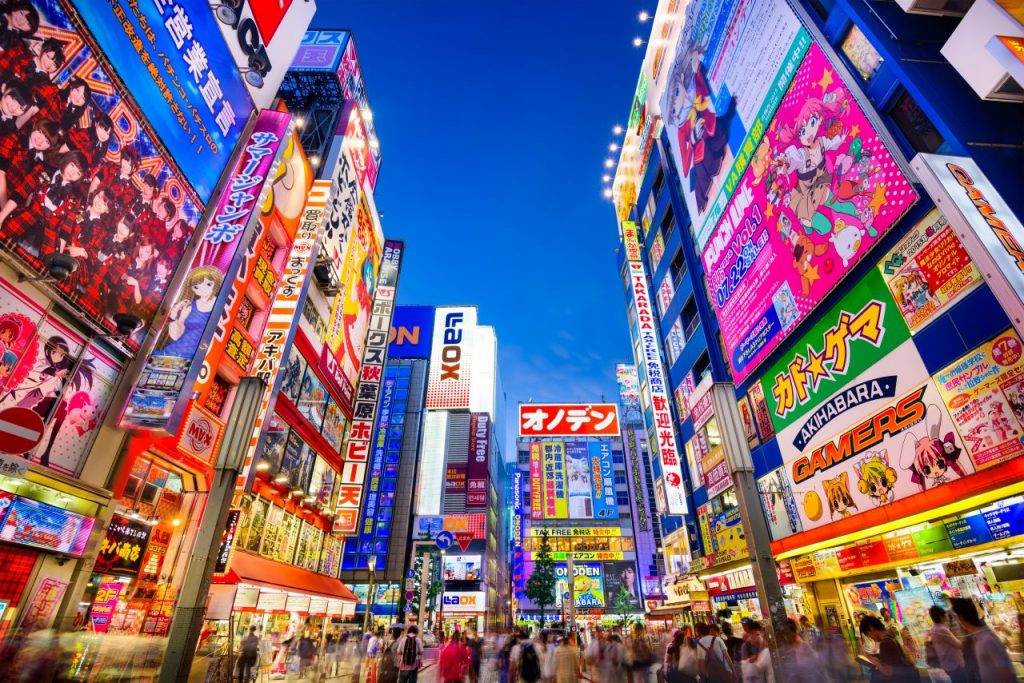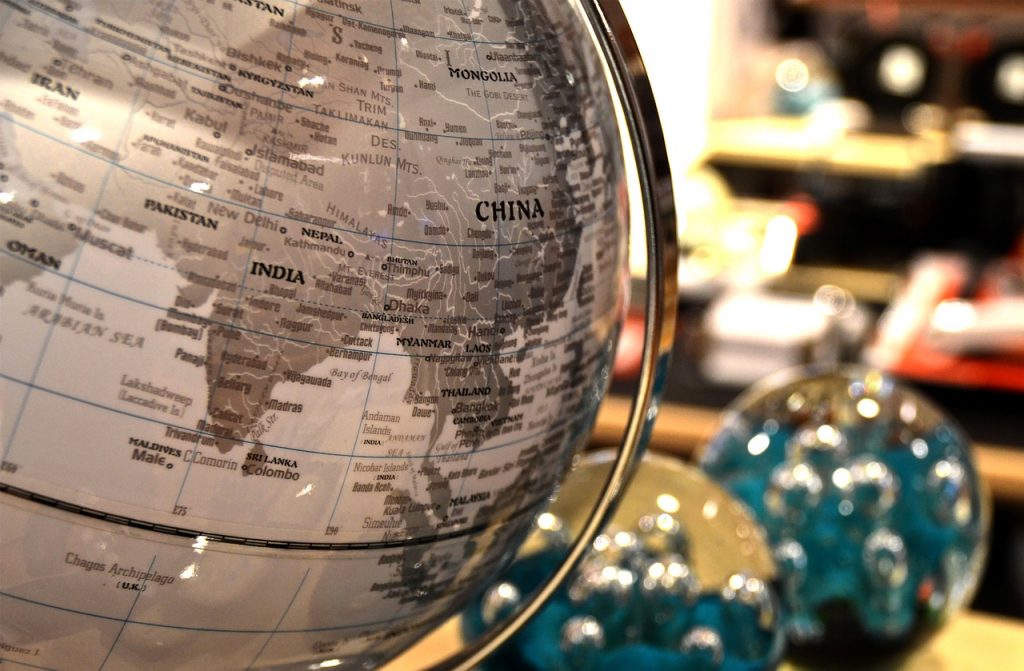Join GlobalBizzNetwork and start your international business network today.
Japan

Japan is continuing to build on a number of impressive statistics – including that the economy of Tokyo is bigger than that of all Russia, while the Chubu region of central Japan is worth more than the GDP of South Korea.
Mr Abe has also expressed a desire to further develop Japan’s international economic ties, including through an economic partnership agreement with the European Union.
Like all nations, Japan is undergoing dramatic social changes, including the rapid aging of its population. That, for example, offers good opportunities for companies that specialise in the elderly-care sector and related businesses. Another area with good potential is education, with more parents recognising the importance of giving their children a more globalised outlook, with particular emphasis on English language learning from an early age.
A Huge Economy
Japan’s economy has been famously sluggish over the last two decades, but the market here remains vast and the present government has implemented a number of far-reaching reforms that are designed to bolster that recovery even further. The three-pronged strategy introduced by Prime Minister Shinzo Abe – inevitably dubbed “Abenomics” – has stabilised the yen exchange rate, fattened the stock market, boosted corporate investment and encouraged the public to go out and spend.
A Cutting Edge Business Culture
- 62 Fortune 500 companies are Japanese.
- Japan boasts the highest number of millionaires in Asia.
- Hunger for IP, especially in high-end electronics, biopharmaceuticals and business services.
- Young entrepreneurs are challenging old ways
- Japan has the fourth highest R&D spend in the world at 3.39% of world GDP.
It is also a stable place to do business: commitments are upheld and things happen on time. Doing business holds fewer surprises in Japan than elsewhere in the region – with IP, in particular, well protected, and payment, deliveries and responses to queries arriving promptly.
Consumers with High Levels of Disposable Income
With a staggering 1.9 million Japanese millionaires – the most in Asia – there is clearly a large pool of people with money to spend. And the Japanese are, without doubt, fans of both cutting-edge new technologies and services and high-quality imported products. Which is ideal for UK firms with expertise in those areas. Consumers here focus heavily on quality, style, reliability and a sense of tradition in a finished product and consider foreign companies capable of delivering all that and more. Many consumers today are those who made their money during Japan’s rapid economic ascent and have now retired and are looking to enjoy the fruits of their labours. The over-60s have high levels of disposable income and are not shy about spending it on themselves or their families. The amount of personal wealth is high: $12.8 trillion in net financial assets is held by households (almost equivalent to the value of US GDP).
From fashion through to automotive, food and drink, design and the latest digital creations, Japanese consumers have an affection for the best of what Western companies have to offer. And that’s without all the corporations looking to access Western know-how in the areas of chemicals, construction, engineering, transportation, communications, consulting, energy, biotechnology, pharmaceuticals and a myriad of others.
Other sectors that can be fertile ground for inversting companies include single-person households and singles who live with their parents and therefore have plenty of money to be attracted by the right products.
Consumer
Japan has some of the richest, most quality-conscious and savvy consumers on the planet. Foreign fashion brands and designers continue to make a huge impact on this fashion-obsessed nation, Good designers and design companies are appreciated from architects to giftware to consumer design. The rise and rise of e-commerce in Japan provides opportunities in the huge retail sector, and Western Food and Drink companies are making inroads into a competitive market which appreciates authentically Western products.
Fashion
Japan has long been one of the world’s largest fashion markets. In Asia, Tokyo is a hub of creative fashion, with Japanese designers and foreign designers rubbing shoulders in ultra-trendy neighbourhoods of Harajuku, Shibuya, Daikanyama, and elsewhere. Trends change regularly led by fashion-savvy and affluent consumers. There are approximately 250 department stores, 500 fashion boutique chains, and many other independent stores country-wide.
Food & Drink
Japan has high levels of consumption, with food and drink making up a significant proportion of this spending. The food and drink market is very sophisticated, and although Japanese traditional culinary culture remains a strong part of national identity, Japanese consumers enjoy a diverse range of food products now available at supermarkets, department stores, grocers and convenience stores. The Japanese value the country of origin and stories behind products, and attach significant importance to packaging and presentation.
High-Technology
Japan is the original high-tech economy. Visitors to Japan continue to be amazed at the range and demand for technology in all aspects of people’s lives. Nowhere is this more true than in the medical sector where e-health is leading the way to cope with a fast ageing population. This ageing is creating demand across all life sciences sectors and foreign companies are at the forefront taking advantage. Japanese multinational giants still dominate the IT & Communications sector with an increasing appetite for innovative technologies and services. In addition, the constantly evolving aspect of the technology market means that the demand in sectors such as cyber security, space, and emerging technologies is set to increase over the next few years, meaning more opportunities for doing business in Japan.
Life Sciences
Japan has one of the world’s fastest growing elderly populations, driving growth in the huge Life Sciences market. In 2010, almost a quarter of Japan’s 127 million people were over 65. And this is predicted to increase to over 30% by 2025 and to 40% by 2055. Japanese society is therefore facing an increasing number of chronic and long-term diseases. After the US, Japan has the second largest healthcare, pharmaceutical and medical devices markets in the world. Total medical expenditure is over GBP 250 billion a year and the Japanese pharmaceutical market is bigger than both France and Germany’s combined.
For the healthcare market, unique, sophisticated, and highly technical products are sought to assist elderly people, ranging from healthy elderly people to those with disabilities. For the medical devices market, opportunities exist with advanced and innovative products for exports of finished products, joint R&D and technology licensing-out. In pharmaceuticals, the demand for joint development, outsourcing of R&D, clinical trials and regulatory affairs to Europe continues to increase.
IT & Communications
Japan has one of the most advanced IT and Communications markets in the world. Home to many world-renowned electronics brands, Japan has been at the advent of new technologies for many years as a country of early adopting consumers. Japan was at the forefront of the early take up of mobile communications, personal entertainment systems and computer electronics, although it often developed national rather than global networks. Recent years have seen a reversal of this trend, and a rise in the importance of global standard technologies which offer greater integration with worldwide markets.
This is presenting opportunities for foreign companies as Japan’s leading large mobile phone, electronics and IT companies look overseas for nimble partners with innovative technologies. Companies with unique and high-tech products are well placed to take advantage of growing demand in software and computer services, particularly cloud-based services, as well as in cyber security field, where the Japanese government is moving to establish security technologies for control systems through international cooperation and standardization. Technology, IPR and consultancy for this particular area is a big interest.
Digital Media
Japan is the world’s second largest media and entertainment market. It possesses a broad array of advanced technology and infrastructure, and is home to high-quality producers of content (film, TV, anime, music, etc) and hardware. Its tech-savvy consumers drive forward innovation, with an increasing drive for creative concepts and ideas from overseas. There is demand for innovative, interesting, high-quality digital content from various media/channels, as well as relevant technology/apps. Key areas of opportunity are TV content – where UK’s world-leading strengths are becoming better understood, music – especially in the live sphere, and the huge world-renowned animation market.
Services
More than half of exports to Japan are services which remain in huge demand here. Western countries have strong representation in Financial and Business services, where a shift towards the globalised economy is creating opportunities. This also applies to Education & Training in these areas well understood by Japanese companies looking to internationalise their workforces in the face of the economic challenge from China.
Education & Training
In Japan, like many Asian countries, the ability to access a good education determines life chances. This is a country obsessed by self-improvement – from young school kids studying cram school after work and at weekends, to 80 year olds studying English, to salarymen practising to be the next Tiger Woods. It is a powerful driving force behind Japan’s economic success. In a business context, Japan needs to develop people who can be globally competent as Japanese corporate activities focus more on overseas markets. This necessity is creating opportunities in the corporate training sector and in English education ranging from toddlers to adults. There are opportunities in English language teaching (ELT), corporate training, the internationalisation of universities, internship programmes and education ICT.
Manufacturing & Industrial
Japan built its twentieth century modernisation on the back of its world-class manufacturing base. Japanese manufacturing companies still lead the world in a number of lucrative industries – from car production to heavy industries. It also drives Japan’s continued export success. Foreign companies have been enjoying success in several manufacturing sub sectors such as aerospace and automotive where innovative and high-tech solutions are in demand from Japanese manufacturers. The chemicals sector continues to be one of the largest export earners in Japan. The Fukushima nuclear crisis in 2011 has contributed to a country-wide reassessment of the energy mix, with significant growth in renewable energy.
Chemicals
Japan is the world’s 3rd largest market in terms of shipment and production of chemicals. The chemicals industry adds value worth approx. £100 billion a year to the economy, and is the largest of all manufacturing industries in Japan. With £15.3 billion spent on R&D, Japan is open to innovative and high quality products, technologies and services. For foreign companies this means opportunities in pharmaceuticals and energy (eg. power generation, fuel cell batteries etc.), as well as demand in the purchase of innovative products and technologies, in-licensing of innovative proprietary technologies enabling them to differentiate the products from competitors, outsourcing production of specialist chemicals and scope for joint R&D opportunities
Energy
The energy market in Japan is currently undergoing its most radical shake up since the end of the Second World War. The 2011 Earthquake and subsequent nuclear incident have led to a greater awareness by the Japanese government, business and consumers about the importance of sustainable supplies and a secure energy mix – with a significant shift in policy and market focus towards renewable sources of energy.
As a result there are opportunities for foreign companies in low carbon energy generation such as offshore wind, solar PV and biomass, as well as in grid development, demand-side management, and smart storage. Japanese companies and consumers are also looking for technological solutions which conserve energy – in particular focusing on smart technologies for business.







